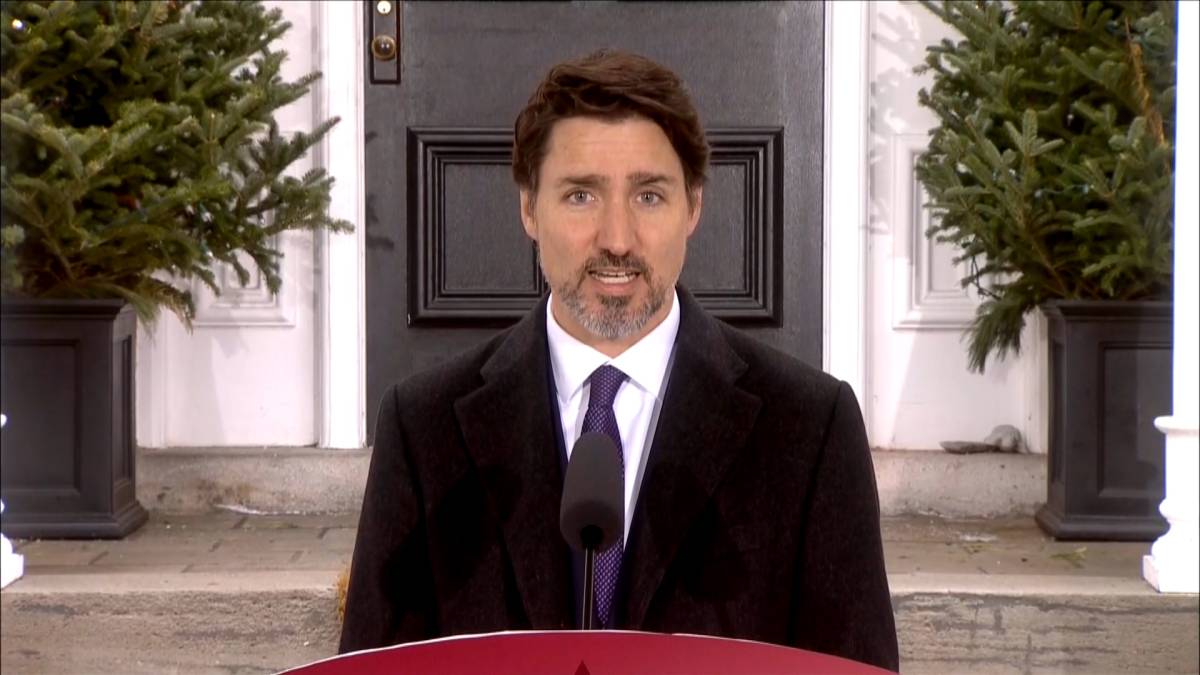Prime Minister Justin Trudeau’s decision to close the border to asylum seekers who enter the country irregularly amid the worsening global COVID-19 outbreak is a violation of international law, experts say.
“Deeply disappointed by Justin Trudeau’s decision to shut down the Canada-US border to refugees, in contravention of international refugee law and arguably Canadian constitutional law,” wrote immigration law professor Sean Rehaag on Twitter just hours after Friday’s announcement.
Rehaag, who leads York University’s Centre for Refugee Studies, also said the government’s decision puts Canadians’ health at risk because closing controlled border crossings for irregular migrants, such as Roxham Road in southern Quebec, will likely increase the chances that asylum seekers will find other ways to enter Canada.
“Refugee claimants go through medical checks and self-isolation (at places like Roxham Road).” Reghaag wrote. “Closing down such routes pushes asylum seekers to cross surreptitiously, with no screening.”
On Friday, Trudeau announced that irregular migrants crossing on foot from the U.S. will be turned away when they reach Canada as part of a wider border shutdown due to the new coronavirus pandemic.
Trudeau said that the move was part of a reciprocal agreement with the U.S. and that would-be refugees will be turned back “anywhere at the Canada-U.S. border.”
The decision comes amid security concerns around screening people at irregular border crossings for COVID-19 and hours before the closure of the Canada-U.S. border to all but essential travel, which goes into effect at midnight.
“Those who’ve already crossed the border will be put in isolation,” Trudeau said. “But in the future, those trying to cross the border irregularly will be released back into the U.S.”
Trudeau added that the new measures are “temporary” but nonetheless necessary as the world battles the spread of COVID-19, which had sickened nearly 250,000 people worldwide as of Thursday, including at least 846 Canadians.
Decision could create ‘more risk’
It’s unclear exactly how the government plans to patrol the more than 9,000-kilometre border between Canada and the U.S.
Public Safety and Emergency Preparedness Minister Bill Blair said Friday there’s “no evidence” that suggests asylum seekers are a higher health risk than others wanting to enter Canada, and that all non-essential travellers “posed a risk.”
“We would simply direct them back to curtail that irregular migration — which was very difficult, quite frankly, to monitor — to ensure the safety of Canadians,” Blair said.
A spokesperson for Blair’s office later said the decision to close the border to irregular migrants was made based on decisions by the International Organization for Migration and the United Nations Refugee Agency (UNHCR) who are “concerned that international travel could increase the exposure of refugees to the virus.”
But in remarks made Friday, Rema Jamous, head of the UNHCR in Canada, said that while all states must manage their borders in the context of the COVID-19 pandemic, they must also “carefully balance these measures to not close avenues to asylum or return people to situations of danger.”
Jamous also said the UNHCR is working to make sure it fully understands the government’s decision and that she knows the situation is in flux.
Still, there are those who support the government’s decision completely.
Conservative immigration critic Peter Kent said in a statement that it was the “right thing to do.”
“[I’m] pleased the government has heard CPC calls for stronger measures at the border,” Kent said.
Others, such as Craig Damian Smith, an expert in the forced migration of refugees, believe harsher border controls meant to stop the flow of asylum seekers are often counterproductive, leading to higher rates of smuggling and human trafficking across international boundaries.
“Professionalized smugglers will most likely step in to meet demand,” he said. “Particularly if the people who want to leave (the U.S.) are undocumented.”
Smith acknowledges that during a time of global pandemic — when Canada’s health care system is already struggling to keep up — there are likely “no good options” for the government when it comes to securing the border, adding that the potential cost of isolating irregular migrants for two-weeks and paying for their medical care if they are sick “could become overwhelming.”
Still, he thinks the government has an obligation to protect asylum seekers, even during a pandemic.
He says not doing so could create “more risk” for Canadians if irregular migrants who succeed at entering the country despite the ban go underground, rather than presenting themselves to authorities.
Source link
Related






























